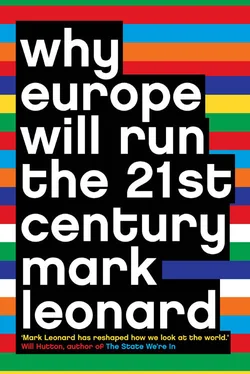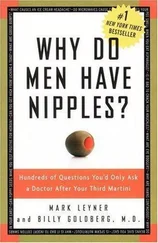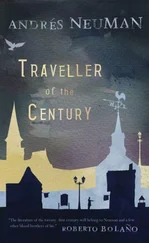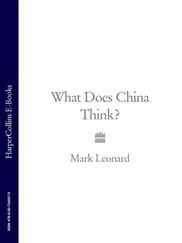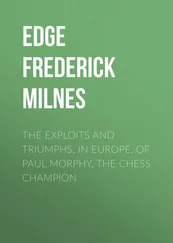CHAPTER 2 ‘Divided We Stand, United We Fall’
1968 was a year of revolutions. What started in the Sorbonne in Paris as a protest about an outdated curriculum and the threat of a reduction in student numbers soon spread like wildfire around Europe and the United States. But the excitement was not limited to universities. Dee Hock, a middle manager in a bank in Seattle who had dropped out of community college after just two years, was starting a revolution of his own – one that could hold some important lessons for the European Union. Many have argued that Europe’s divisions will stop it punching its weight in the world, but Hock’s example shows that you can take over the world without developing a centralized bureaucracy.
Hock’s journey started when the bank’s headquarters appointed him to a committee that was working on a business strategy for its ailing credit card, Bankamericard. The backdrop was bleak. Credit cards had only existed for ten years and the infant industry was in chaos. Banks had dropped millions of unsolicited cards on an unsuspecting public that had no experience of credit facilities of this kind. Losses were thought to be in the hundreds of millions of dollars. Card owners were bankrupted, politicians were alarmed, and the media launched a feeding frenzy of blame-calling.
Instead of developing a new business strategy, Hock persuaded his superiors to start a new kind of organization: Visa. He was determined to move beyond the hierarchical companies that were products of the industrial revolution and create an organization based on biological concepts – a network. He wanted to create a franchise that would have global presence, but maintain competition between individual banks so that they would be driven to innovate.
The basic principle was to create a company that did not have shareholders but members. These members would own the company for ever but could not buy or sell their part of the company – which meant that it would be impossible for any individual member to gain control of the overall organization. Hock wanted to create an organization that would be both highly decentralized and highly collaborative. Authority, initiative, decision making, wealth – everything possible was pushed out to the periphery of the organization, to the members. What began with just a handful of modest banks in just twelve states grew into an organization that is now owned by over 21,000 financial institutions in 150 countries. Today Visa is responsible for the largest single block of consumer spending ($2.7 trillion annually), services 600 million people, and continues to grow at a rate of 22 per cent a year. 1
In spite of its enormous economic power, Visa is effectively a skeletal organization with a tiny central administration and only three thousand employees in twenty-one offices around the world. It relies for its strength and success on enabling others to flourish. And that, says Hock, is exactly how it ought to be. ‘The better an organization is, the less obvious it is,’ he says. ‘In Visa, we tried to create an invisible organization and keep it that way. It’s the results, not the structure or management that should be apparent.’ 2
Although he predated Dee Hock and came from a very different world, the principles that Monnet promoted bear a remarkable resemblance to those that have turned Visa into one of the most successful companies in global history. Though very few people realize it, the European Union he gave birth to is already closer to Visa than it is to a state: it is a decentralised network that is owned by its member-states. 3
The headquarters of the EU Council says it all. The Justus Lipsius Building looks like it has landed in Brussels from outer-space – obliterating the genteel Art-Deco surroundings with its marble footprint. Clad in heavy grey stone and reflective glass, this anonymous rectangular building covers some 215,000 square metres, circling a mammoth atrium with 24 kilometres-worth of corridors of power. 4 Like a Russian doll, the external shell has replicated itself infinitely inside, housing dozens of rectangular rooms – each containing a rectangular table with a hole in the middle. The tables are neatly set up for European negotiations with placenames for the twenty-five member-states, long, thin microphones, notepads, and bunches of red pencils. In some of the rooms there are booths for interpreters to translate between the twenty EU languages. This building is like a factory for European agreements. And because the EU is a network rather than a state, negotiation is not a part-time activity: it goes on every single day, around the clock. Like the banks that own and control Visa, it is the national governments that set the agenda for the future of Europe.
Four times a year, all the EU Heads of Government gather here amid a fanfare of publicity, with a media party that runs to the thousands. There are between 80 and 90 meetings a year 5 of various formations of the Council of Ministers, which brings national ministers (agriculture ministers, finance ministers, health ministers, etc) together to agree policies in each of their areas. Working under the ministers are groups of national civil servants. The ‘Committee of Permanent Representatives’, made up of ambassadors from all the member-states, is responsible for agreeing 90 per cent of the European Union’s legislation. 6 Working under it are dozens of ‘working groups’ that prepare agreements in each of the different policy areas.
The process is complicated, but it allows every country or parliament in the network to have some say. Before decisions even reach the magic circle in Brussels, national parliaments can mandate their governments to stick to a clear national position. After decisions have been taken, they then face a tough process of scrutiny from the 723 directly elected members of the European Parliament who represent citizens from the twenty-five member-states. 7 Finally, the laws that are agreed are upheld by the European Court of Justice, made up of judges appointed from all the member-states and which acts as a supreme court.
In seminar rooms across the world, historians and political scientists are trying to understand and categorize the European Union. The usual parlour game is to guess which country the EU will end up copying. Will it be the USA – perhaps the 1850s confederal model? Or will it be a constitutional federal democracy like post-war Germany, or the Swiss system where national political debates are much less important than local scuffles and the needs of the secretive banking economy? Some predict an overpowering bureaucratic state on the Napoleonic model, while others fear we will build a political system so divided that it could collapse like the French Fourth Republic. Some Americans, in particular, are impatient for the Union to unite; to develop a federal structure; to have a constitution that clearly separates the executive, judiciary, and legislature; to elect a single president; and to give the European Parliament law-making powers like national parliaments. In short, to get a ‘single phone number’. 8 But Jean Monnet’s genius was to create a political structure that is quite different from the traditional nation-state.
Although some federalists still dream of a country called Europe, and the European Union sometimes pretends to be a state with its flag, passport, and anthem, it is fundamentally different from a state. Like Visa, it is a decentralized network that exists to serve its member-states. The EU is a skeletal organization that leaves the real power to its member-states, which are responsible for implementing and overseeing the vast majority of the European Union’s activities. This revolutionary structure has allowed the European Union to grow with the support of its members. But it has also fundamentally changed the nature of global politics.
Читать дальше
